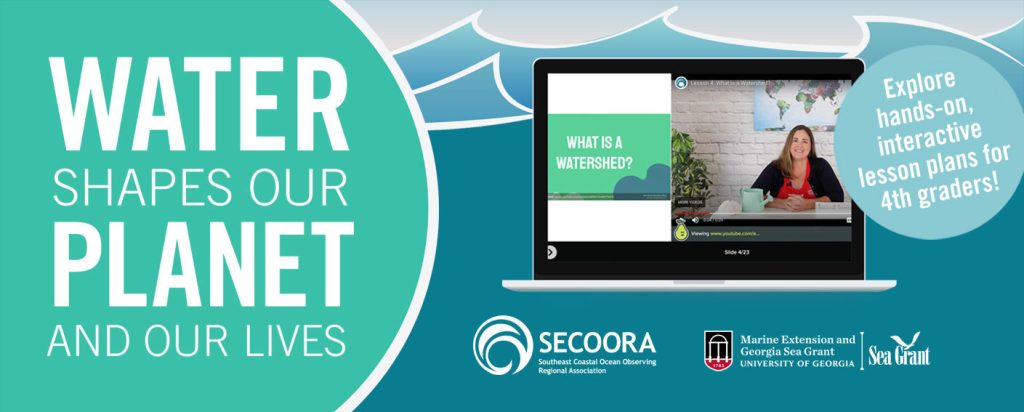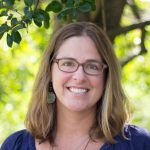A new comprehensive fourth grade, virtual-learning science curriculum that focuses on the water cycle, weather, climate, and natural processes that shape the Earth’s coasts and communities is now available.
The curriculum, Water Shapes Our Planet and Our Lives, provides a unique, hands-on experience where students explore local weather, discover and create tools used by scientists to collect weather data, and evaluate long-term trends recorded by climate scientists.
“Our goal was to create a “one-stop shop” for educators to find up-to-date, virtual materials to teach water, weather and climate standards while introducing climate change science to their students,” says Katy Smith, water quality program coordinator at the University of Georgia Marine Extension and Georgia Sea Grant.
Smith served as the principal investigator on the project, which was funded by the Southeast Coastal Ocean Observing Regional Association (SECOORA).
“While our curriculum is built around ‘Science Georgia Standards of Excellence,’ it will benefit any fourth-grader learning about these universal topics,” says Smith.
Each lesson is designed as an online teaching resource for both educators and curious learners. Educators are able to teach the lessons to their students through Pear Deck, an interactive presentation tool for educators, while curious learners can launch the lessons at home. There are short tutorials and other resources on the curriculum web page to help users get started. Below is a preview of the lessons:
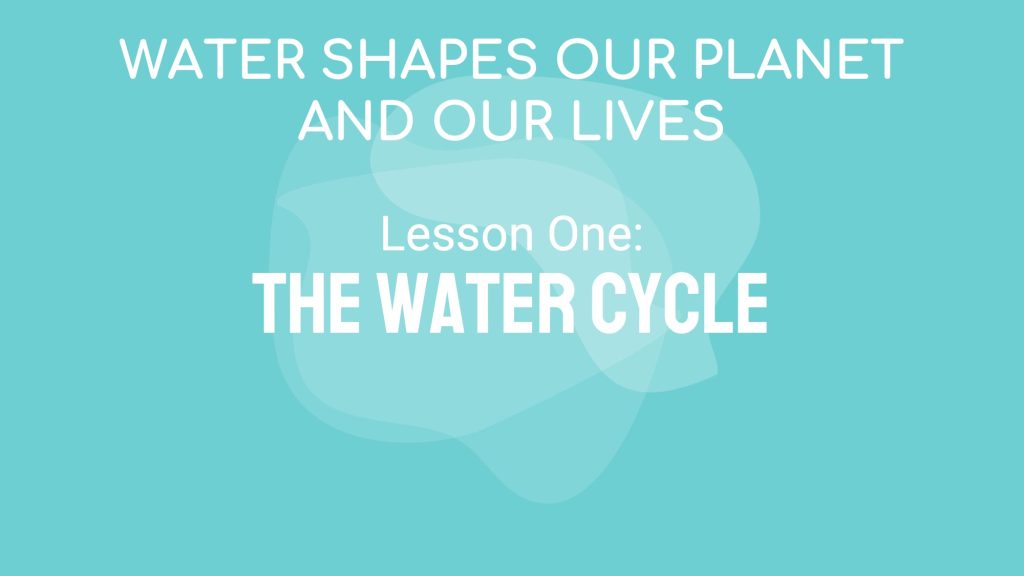
Define the water cycle, learn about the important role water plays in our lives, and build a miniature water cycle model in a jar.
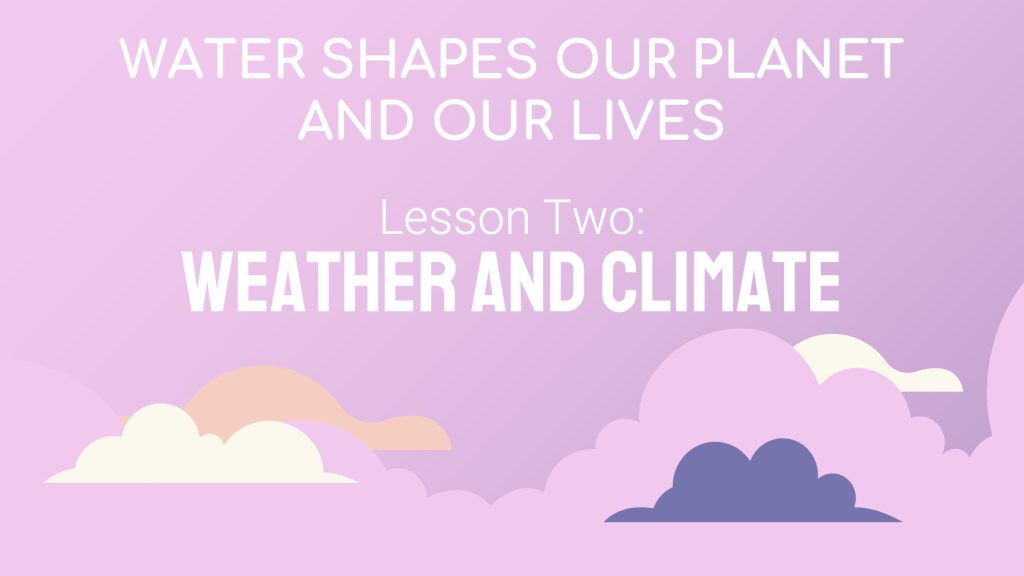
Learn the difference between weather and climate, discover how scientists study weather, get an introduction to climate change and sea level rise, and mimic precipitation by making a rain cloud.
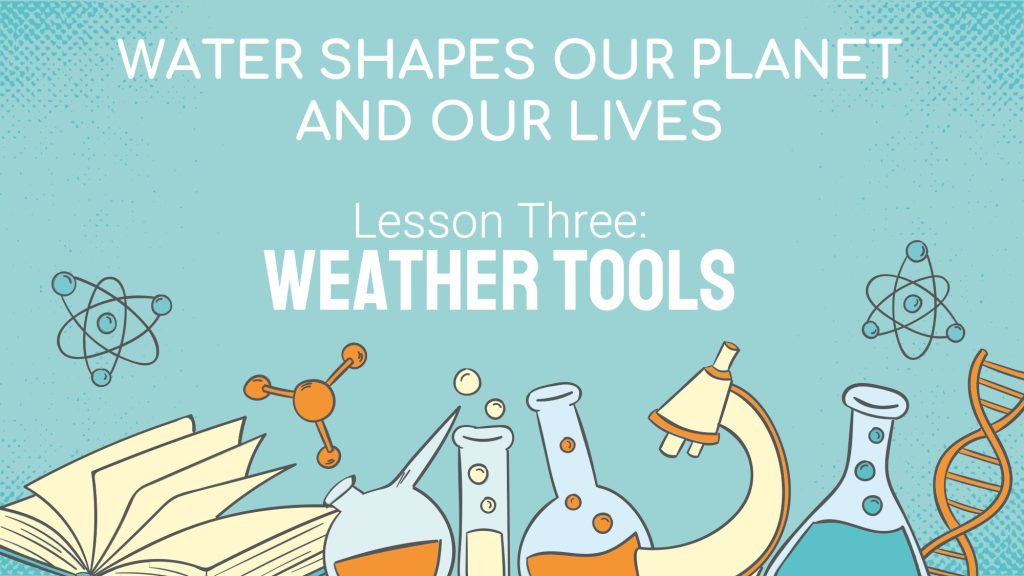
Discover tools used to study the weather, learn about cloud formations and weather predictions, explore weather maps and symbols used to communicate weather events, and build an instrument to record wind speed.
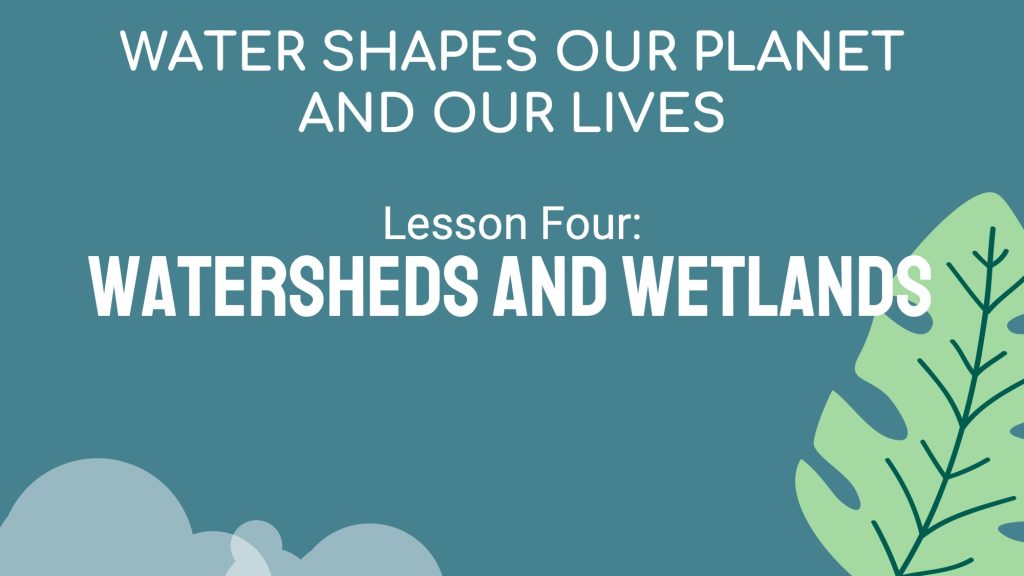
Learn how water flows within natural watershed boundaries, discover benefits of wetlands for wildlife and humans, and mimic how water moves across the landscape and interacts with various sources of pollution.
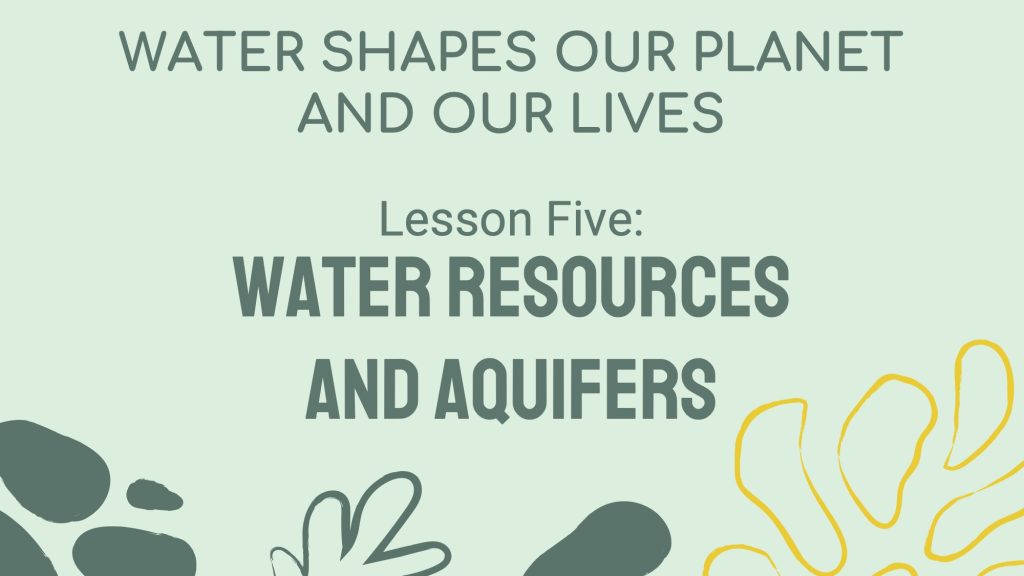
Learn about surface and ground water resources, consider ways water is used in our daily lives and why it is very important to protect, and build an aquifer model.
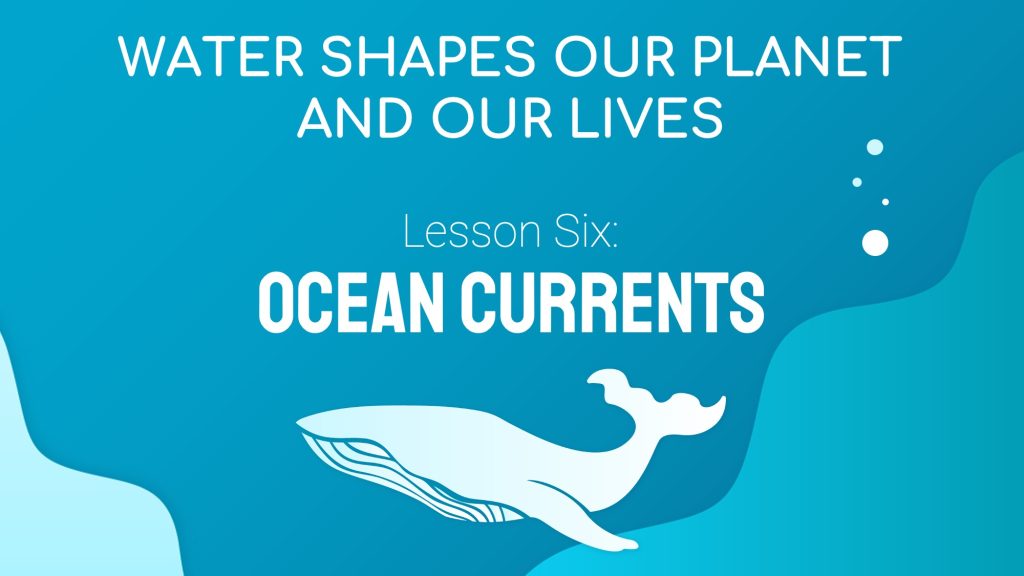
Discover how natural forces influence ocean currents, learn how ocean currents influence life on Earth, and observe how temperature influences the flow of water in the ocean.
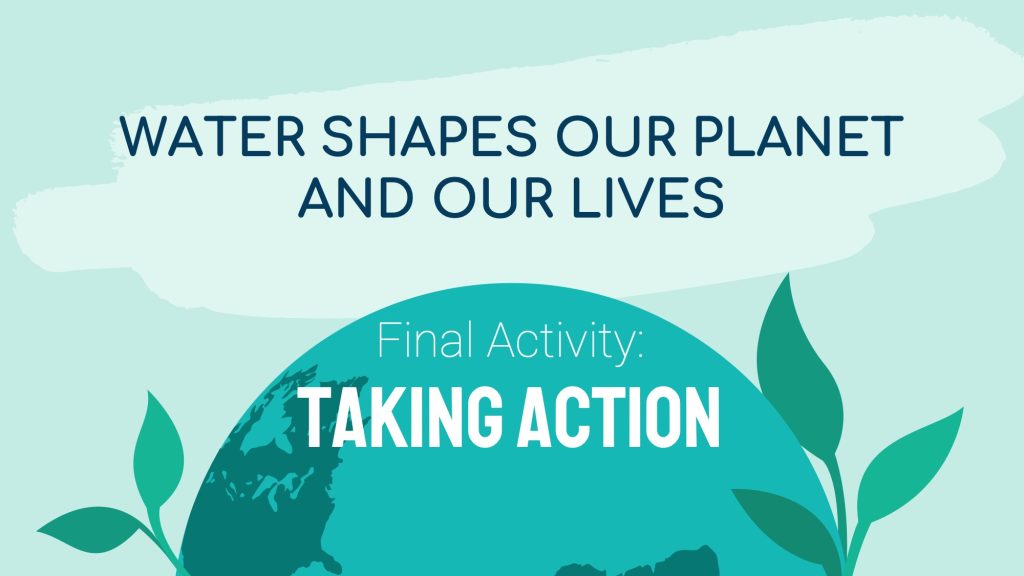
Students will have an opportunity to communicate what they learned from the series by selecting an animal, doing research to learn how climate change is or could be impacting that species, and completing a creative project to share what they learned.
All lessons are paired with videos about the different topics and include hands-on activity tutorials for students to follow along with educators. For virtual students who don’t have access to classroom resources, Smith has developed 60 activity kits that are available for educators to request for their students on a first-come, first-serve basis. Educators can reserve kits by filling out this form.
A webinar about the curriculum is scheduled for Tuesday, April 27, from 3:30 – 4:30 p.m. Participants will learn how to implement the lesson plans and the project team will be available to answer any questions. Click here to reserve your spot.
For a limited time, the first 60 educators to utilize this curriculum and complete the evaluation will receive a one-year subscription to National Geographic Kids print magazine (9 issues).
Related news
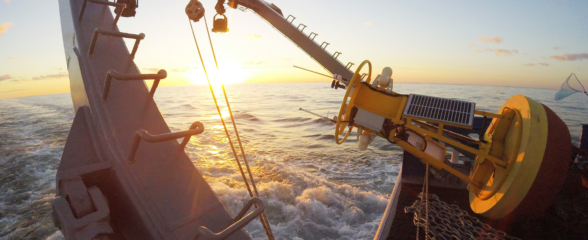
Funding Cuts to NOAA IOOS Will Hurt the Southeast
Proposed federal funding cuts would eliminate the IOOS Regional Observations budget for next year. Contrary to the budget Congress has already approved for this year, the Executive Branch wants these proposed cuts to go into effect in 2025.
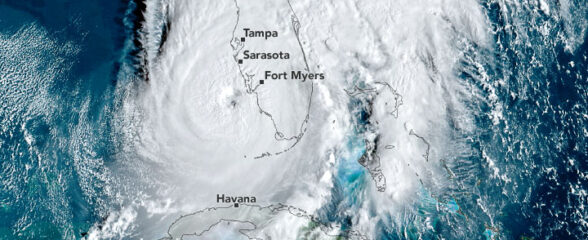
SECOORA Webinar on the Rapid Intensification of Hurricane Ian: Warm Subsurface Water on the Wide Continental Shelf
Join us Thursday, April 24th at 12 PM ET for the April installment of the SECOORA Coastal Observing in Your Community Webinar Series! This month, we will hear from Dr. Yonggang Liu from the University of South Florida. He will discuss his research on the rapid intensification of Hurricane Ian in relation to anomalously warm subsurface water on the wide...
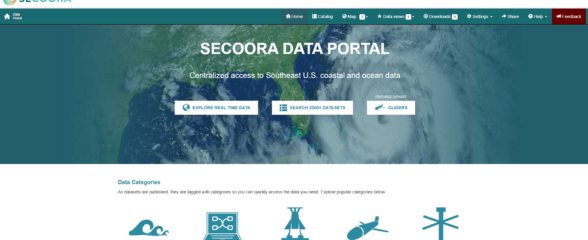
Webinar: SECOORA Data Portal Demo
Join us on Thursday, February 20, 2025 at 1:00 PM ET to learn more about the SECOORA Data Portal and how to navigate it. Axiom Data Science will be providing an overview of the portal, including how to search the Catalog and make a custom data view.
